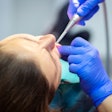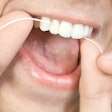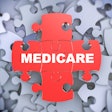
The U.S. Centers for Medicare and Medicaid Services (CMS) isn't doing enough to stop dental disease in poor children, members of Congress said this week, citing a report by the Government Accountability Office (GAO) that they had commissioned.
It was the third hearing the House Committee on Oversight and Government Reform has held since Deamonte Driver, a 12-year-old from Maryland, died from complications of a dental abscess in February 2007, and committee members were clearly frustrated.
— Rep. Jim Jordan (R-OH)
"What we're trying to do clearly isn't working," said Rep. Jim Jordan (R-OH).
Testifying before the committee, Katherine Iritani of the GAO said 35% of children eligible for Medicaid had seen a dentist in 2007. Although this is a slight increase from 27% in 2000, she noted that about the same number -- one in three -- of these children has untreated decay.
Each state has latitude to design its own Medicaid program. CMS has reviewed various state Medicaid dental operations, but the agency isn't doing enough to force improvements or to spread information about successful approaches, said Iritani.
'Rope-a-dope'
The committee sharply grilled Cindy Mann, director of the Center for Medicaid and State Operations. "I'm feeling a feeling of déjà vu," said Rep. Elijah Cummings (D-MD). "So often in this committee we felt like we were getting a rope-a-dope ... I want specific commitments."
Mann said her agency had identified best practices; was spreading information about the Children's Health Insurance Program, another source of government funds for dental care; and had launched a Web site. "I would say we are moving slowly in the right direction," she said.
"I would say you're moving very slowly in the right direction," responded Jordan.
Iritani said states cite four obstacles to expanding dental Medicaid: Patients have trouble finding dentists who accept Medicaid, and dentists complain of low reimbursement, too much paper work, and missed appointments.
Punish parents?
In the second half of the hearing, the committee convened a panel of experts on dental Medicaid services.
Burton Edelstein, D.D.S., M.P.H., chairman of the Children's Dental Health Project, said that CMS can provide an important leadership role but can't solve the problem by itself. Likewise, increasing reimbursement and streamlining paperwork are essential, but even states that have taken these steps are running up against a ceiling.
"No state has reached more than 45% of [eligible] children," he said.
In written testimony, Dr. Edelstein called on other federal agencies, such as the National Institutes of Health and the Centers for Disease Control and Prevention, to educate the public about the need for dental care. He also suggested that the government explore wider use of midlevel providers such as the dental therapist programs in Alaska and Minnesota.
Frank Catalanotto, D.M.D., testifying on behalf of the American Dental Education Association, said that schools of dentistry and of dental hygiene, county health departments, and federally qualified health clinics together can meet only 8% of the nation's dental needs.
"So part of the solution you need to look at is improving the dental health infrastructure," he said.
Mary McIntyre, M.D., M.P.H., of Alabama and Joel Berg, D.D.S., M.S., of Washington outlined successful measures their states have taken to increase the number of children getting dental care through Medicaid.
One way of addressing the problem of missed appointments is to assign care coordinators to parents often overwhelmed with the daily struggle to feed and house their families, said Dr. McIntyre. She also said her state was trying to teach dental care providers to treat Medicaid patients with more respect.
"You get the behavior you expect," she said.
Committee members brainstormed some of their own solutions. Jordan suggested that CMS encourage programs in which parents would be sanctioned -- perhaps by losing access to other types of government support -- if they miss appointments.
And Rep. Diane Watson (D-CA) suggested that dentists should be discouraged from using amalgam because "you have gas constantly escaping," a health concern which she thought should overshadow any savings in cost.
Copyright © 2009 DrBicuspid.com



















